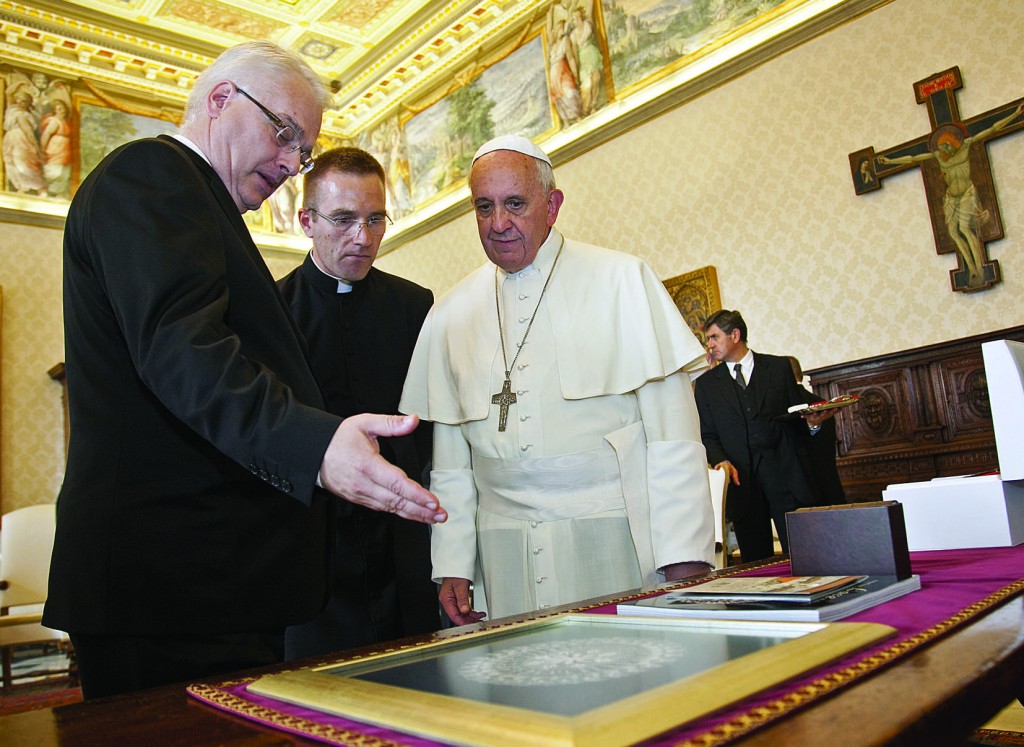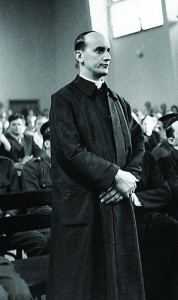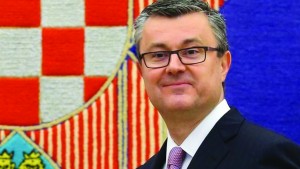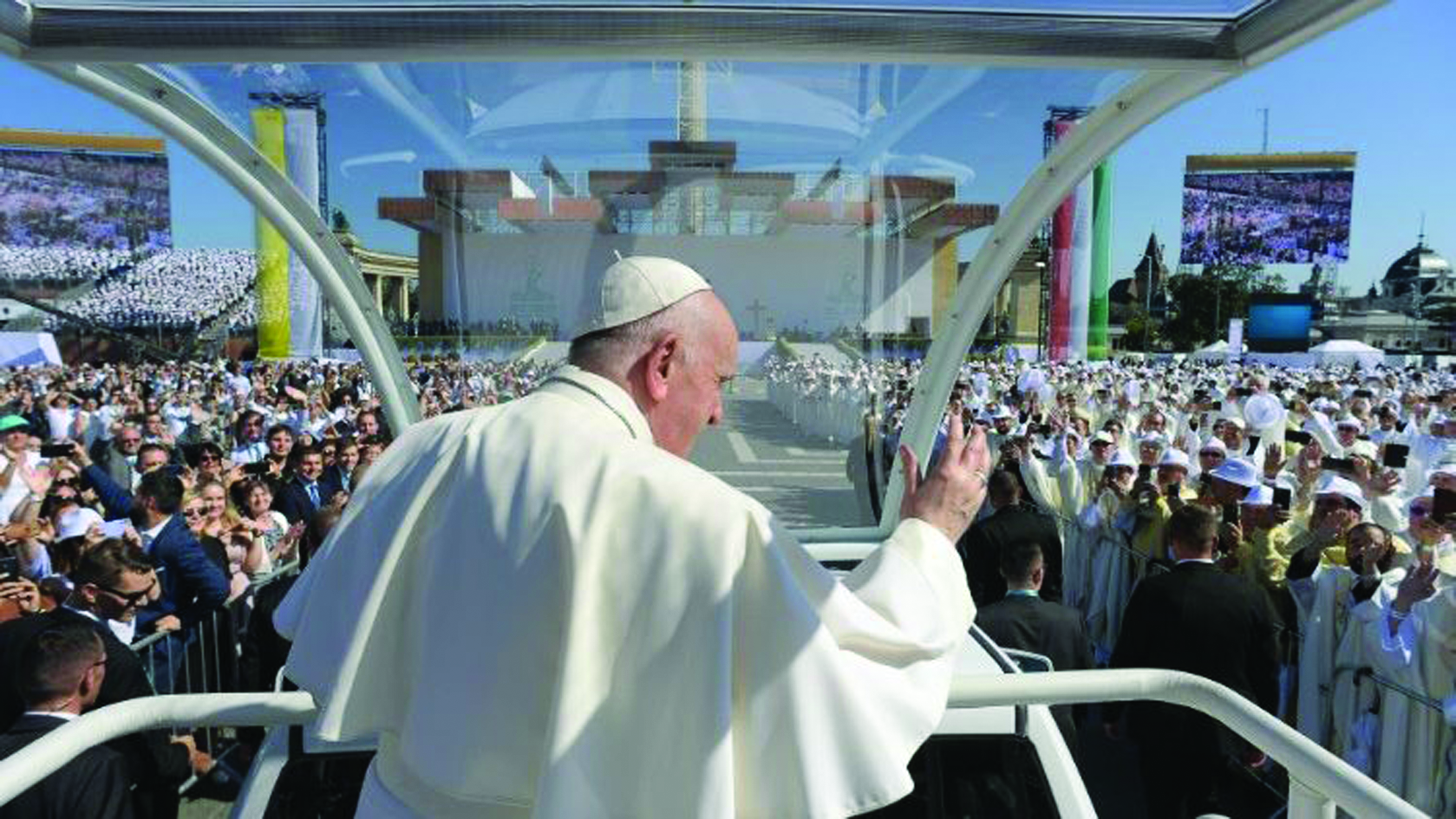
Pope Francis receives the president of Croatia, Ivo Josipovic, in 2013
Croatia’s new prime minister, Tihomir Oreskovic, came to Rome on April 7 to meet with Pope Francis. On the meeting’s agenda, a canonization cause which has led Rome to take an unprecedented step…
Tihomir Oreskovic, Croatia’s new prime minister, came to Rome on April 7 to meet with Pope Francis. The subjects of his talks with Francis included the refugee situation in Croatia and also the proposed canonization by the Catholic Church of Croatian Cardinal Aloisius Stepinac (1898-1960), the Archbishop of Zagreb from 1937 to 1960.
Stepinac is considered a courageous religious leader and martyr by Croatian Catholics. He was imprisoned for years by the Communist Yugoslav regime after the end of the Second World War. The Croatian prime minister’s goal was, in part, to “to push the Pope to canonize Stepinac,” Croatian correspondent Sven Milekic from the BIRN news agency in Zagreb wrote the morning of the meeting.
Pope John Paul II declared Stepinac blessed in 1998.
Still, “Stepinac remains a hotly-disputed figure in former Yugoslavia,” Milekic writes, “revered by Catholic Croats and widely detested among Serbs.”
In this situation of tension over Stepinac and his canonization cause, the Holy See has done something extraordinary: it has set up a “joint commission” which includes Serbian Orthodox in order to study the matter.

Cardinal Stepinac during his trial, September 30 – October 11, 1946
Essentially, this means that, out of respect for the feelings and concerns of the Serbian Orthodox, Pope Francis has decided to “slow down” the Stepinac case for a moment before making any decision on canonizing the revered Croatian Catholic leader.
To do this, Francis is giving the Orthodox a chance to have their voices heard inside an ongoing Catholic canonization process.
This is unprecedented.
But it offers insight into the mind and intent of Pope Francis: he clearly wishes to bring closer unity with the Orthodox, and he is willing to do unprecedented things to take steps toward that unity.
This was the meaning of his decision to meet with Russian Orthodox Patriarch Kirill in Havana, Cuba, on February 12, and this is the meaning of his decision to create this special commission including Serbian Orthodox members to study the Stepinac case.
Croatian government sources are saying that “Pope Francis is not questioning whether Stepinac lived a holy life, but the process has been prolonged because the Pope wants to convince representatives of the Orthodox Church.”
In an article published in January by L’Osservatore Romano, the Vatican’s semi-official daily paper, Father Hyacinthe Destivelle, an official in the Vatican’s Council for the Promotion of Christian Unity, noted that Stepinac is a sensitive issue for the Pope at a moment when he is seeking to improve relations with the Orthodox Church generally.
Serbian President Tomislav Nikolic visited Francis in September of 2015, and Pope Francis reportedly assured him that “the Catholic Church won’t hurry the issue” of canonizing Cardinal Stepinac.
Nikolic said he had told Francis that Stepinac “played a really bad role during World War II,” remaining silent while people “were killed only because they weren’t Catholics.”
However, “many Catholics in Croatia are equally passionate about Stepinac,” Milekic writes, “seeing him as a heroic figure who resisted the imposition of Communism and remained with his flock in Croatia after the Communist takeover when he could have fled abroad. He died under house arrest following several years in prison. His supporters also note that attacks on him for his wartime role only really started after he publicly opposed the imposition of Communist rule in Yugoslavia. After his trial before a Yugoslav court in 1946, he was jailed for 16 years for collaboration with the Ustase and the Axis occupying forces. He was released to house arrest after five years and died in 1960 of thrombosis.”

Croatia’s new prime minister, Tihomir Oreskovic
After his meeting with Pope Francis, the Croatian prime minister met with Secretary of State of the Holy See Pietro Parolin to discuss the contracts between Croatia and the Vatican, as well as the issue of restitution of, or compensation for, confiscated and nationalized Church property.
The prime minister was accompanied by his wife, two daughters and two sons.






Facebook Comments